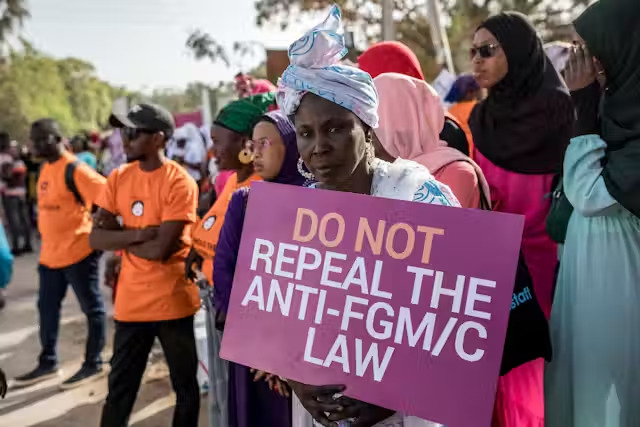As more and more countries outlaw the practice of female genital mutilation (FGM), The Gambia could become the first country in the world to overturn such a ban.
The country’s National Assembly advanced a bill on March 18 that would repeal the 2015 law criminalizing all acts of FGM.

As more countries move to outlaw the practice of female genital mutilation (FGM), The Gambia is considering becoming the first nation to overturn such a ban.
On March 18, The Gambia’s National Assembly advanced a bill to repeal the 2015 law that criminalized all forms of FGM. This potential change has sparked concern among health and human rights activists in The Gambia and internationally.
“This is pushback against women’s rights,” says Nimco Ali, an FGM survivor and co-founder of the Five Foundation. “As soon as we make progress toward equality, the religious right comes together.”
The movement to overturn the ban gained momentum in the subsequent years. “We had hoped that because the ban has the support of so many young people and Gambians that the Assembly would not have voted this way,” says Ali. “The President had given assurances that this bill would not go through, but unfortunately he reneged on that.”
Lawmakers will decide its fate at the next Assembly session in June.
“A horrific form of gender-based violence”
If the ban is lifted, activists are concerned that it could result in further undermining women’s rights.
Ali and others activists say FGM is ultimately a matter of human rights. The vast majority of FGM survivors did not consent to undergoing the practice – most are well below the age of consent, generally between infancy and adolescence.
“FGM is a form of violence, a horrific form of gender-based violence,” says Ali. “I say this as an FGM survivor, having undergone this as a 7-year old. The physical, psychological and emotional scars left by this experience cannot be undone. We have the right to not be harmed.”
Source: NPR

